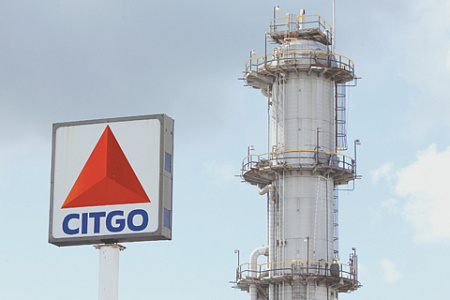
The years-long standoff between Venezuelan opponents and supporters of President Nicolas Maduro over control of the Citgo oil refining company, which was linked to plans to revive the country’s economy, ends with the fact that it will be taken over by foreigners. However, it is still unclear how. Bidding for Citgo shares is entering its final stage, and the winner (definitely not a representative of Venezuela) will be announced soon. The Latin American country will lose its main oil refiner, which also served as a symbol of the success of the economic policy of Hugo Chavez, the predecessor of the current president.
Citgo Petroleum Corporation, or simply Citgo, is an oil refining company located in the United States that specializes in the sale of transportation fuels and petroleum products. Since 1990, it has become a subsidiary of PDV Holding, which is owned by the state-owned Venezuelan company Petróleos de Venezuela, S.A. (PDVSA).
In the early 1990s, she was doing well. The company expanded, and profits grew. Citgo soon became the largest gasoline retailer in the United States and became one of Venezuela’s main foreign assets. The situation changed when then-President Hugo Chavez, declaring a course towards socialist construction, launched a campaign to nationalize business assets in the country. It lasted from 2007 to 2012 and severely damaged the Venezuelan economy, causing a wave of lawsuits against the government of the country. The Canadian mining company Crystallex, which lost its gold deposit, also appealed to the court. 18 borrowers were involved in the case, who accused Venezuela of alienating property and defaulting on debt. Seven years ago, in the United States, the court for the District of Delaware ruled in favor of creditors, ruling that PDV Holding should be held responsible for the nationalization campaign initiated by Chavez and not canceled by Maduro. Citgo severed ties with the parent company and switched to other suppliers. Its shares were put up for sale, and now, according to Reuters, the fight for them has entered the final phase. Who will own them will most likely find out in early July.
Among the applicants for it is the American Red Tree Investment, specializing in investments. A consortium of Canadian Gold Reserve Inc., Rusoro Mining Ltd, and Swiss-Dutch trading company Vitol are also involved in the fight for Citgo. There are no Venezuelan applicants for it.
But the Venezuelan opposition fought to keep Citgo under Venezuelan control. The struggle has been going on since 2019, when many countries, including the United States, recognized the legitimate president of Venezuela, not Maduro, but the then speaker of parliament, Juan Guaido. Sanctions were imposed against PDVSA and its subsidiaries, and their assets in the United States were blocked. The opposition has made no secret that it expects Citgo to come under its control, and has linked this company with the hope of economic recovery as soon as Guaido gains real power in the country. Maduro’s opponents lobbied the United States for a solution that would benefit them, funded legal defense, and even achieved some success. In the summer of 2024, the U.S. Court of Appeals ruled to apply Venezuelan law when assessing creditors’ claims.
The official authorities of the country also opposed the sale of the company. For example, Venezuelan Vice President Delcy Rodriguez posted a government communique on her social media page. It categorically states that Venezuela refuses to recognize the forced sale of Citgo. The sale itself is called “a new act of aggression carried out by US institutions against Venezuela in order to deprive the Venezuelan people of their assets.”
In the Delaware District Court case, Citgo was valued at $11-13 billion. However, according to Reuters, the auction will bring in no more than $8 billion, while borrowers are bidding for almost $20 billion. In addition, the final rate may also be affected by a drop in the company’s revenue over the past year. In 2023, its net profit was $2 billion, and in 2024 it was only $305 million. Dmitry Rosenthal, Director of the Institute of Latin America of the Russian Academy of Sciences, in an interview with NG, noted that the sale of Citgo would have no practical impact on the country, which is currently experiencing an acute economic and political crisis. For Venezuela, this is more of a symbolic defeat and a blow to its future.
“Venezuela currently does not receive any profit from Citgo’s activities. This is due not only to the US sanctions, but also to the fact that the Americans took advantage of the situation in 2019 and deprived Caracas of control over the company. Then Washington recognized the leader of the opposition as the interim president of the country, which, from the point of view of the Americans, transferred the right to manage assets to Juan Guaido. Therefore, a possible sale is unlikely to affect Venezuela. But in the long run, it is, of course, a really important asset for the country,” the expert said.
